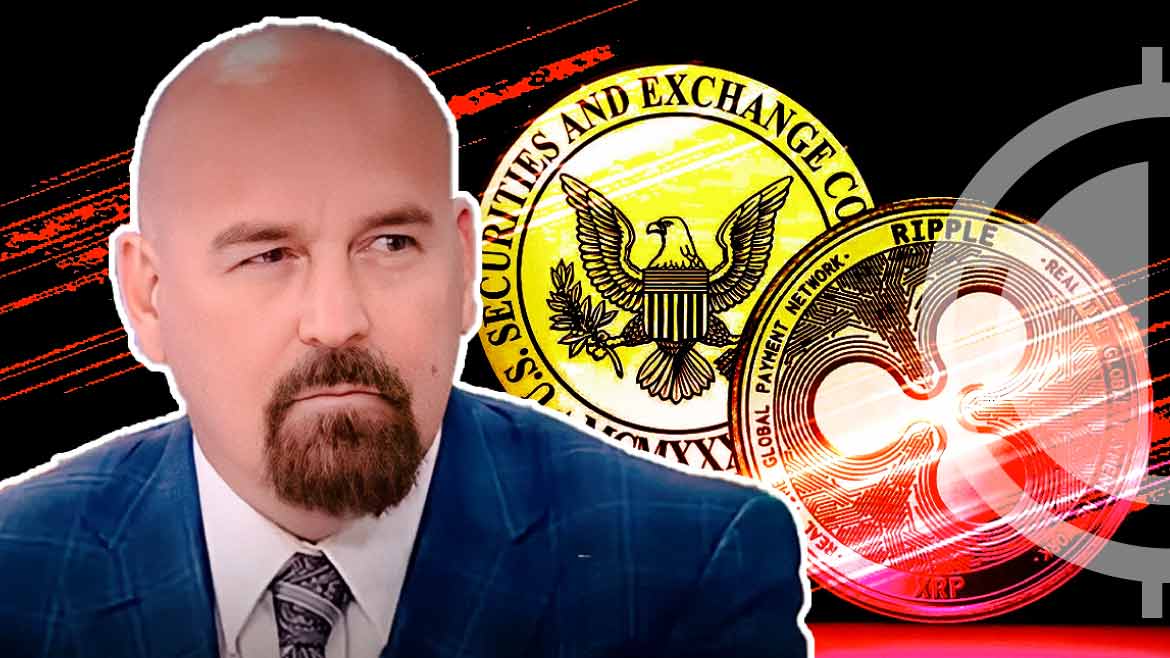- John Deaton alleges regulatory capture within the SEC, focusing on conflicts of interest involving key figures like William Hinman and Jay Clayton.
- The allegations come against the backdrop of the SEC’s lawsuit against Ripple, which is accused of raising over $1.3 billion through an unregistered digital asset securities offering.
- Deaton highlights that William Hinman had allegedly ignored directives to cease meetings with his EEA partners at Simpson Thacher.
Attorney John Deaton had recently raised serious questions about the U.S. Securities and Exchange Commission’s (SEC) integrity, alleging a form of regulatory capture. This term referred to a situation where a regulatory agency advanced the interests of a specific group over the public it was intended to serve.
In a detailed thread, Deaton went to slam the securities regulator:
WHAT IS REGULATORY CAPTURE:
— John E Deaton (@JohnEDeaton1) September 24, 2023
regulatory capture, a form of government failure in which a regulatory agency, which is supposed to represent the needs of the greater public, advances the commercial concerns of a special interest group w/in the sector the agency is supposed to be… https://t.co/vzT0H3MhZ6
The context for these allegations was the SEC’s lawsuit against Ripple Labs Inc., which was filed in December 2020. The SEC had accused Ripple and its executives, Christian Larsen and Bradley Garlinghouse, of raising over $1.3 billion through an unregistered digital asset securities offering involving Ripple’s cryptocurrency, XRP.
Deaton’s allegations had focused on a complex web of relationships involving key figures such as former SEC Chairman Jay Clayton, SEC official William Hinman, and venture capital firm Andreessen Horowitz (a16z). Deaton claimed that Hinman, while still financially tied to his law firm, had declared Ethereum (ETH) a non-security after receiving a document from a16z that specifically referenced ETH. This was significant because Hinman’s law firm had been a member of the Enterprise Ethereum Alliance (EEA).
The lawyer also highlighted the views of Joe Grundfest, another key figure in this narrative. According to Deaton, Grundfest had found the timing of the lawsuit and the departure of key SEC officials suspicious. Grundfest had questioned the rationale behind suing Ripple when XRP had been publicly traded for seven years, emphasizing that the lawsuit would adversely affect innocent people with no connection to Ripple.
Further allegations included Clayton’s law firm representing Joseph Lubin, Ethereum’s and Consensys co-founder, and a major ETH holder. Despite these potential conflicts of interest, Clayton had decided to sue Ripple just as he was leaving the SEC. Shortly afterward, he joined One River, a firm that had placed a $1 billion bet on Bitcoin and Ethereum.
Deaton had also raised questions about Hinman’s compliance with directives to cease meetings with his EEA partners at Simpson Thacher, citing potential violations of federal conflict of interest statutes. Hinman had allegedly ignored these directives, further violating the statute.
The allegations, if substantiated, could have had broader implications on the cryptocurrency market and eroded public trust in regulatory institutions. As of the time of this report, neither the SEC nor the involved parties had issued any official statements in response to Deaton’s claims.











